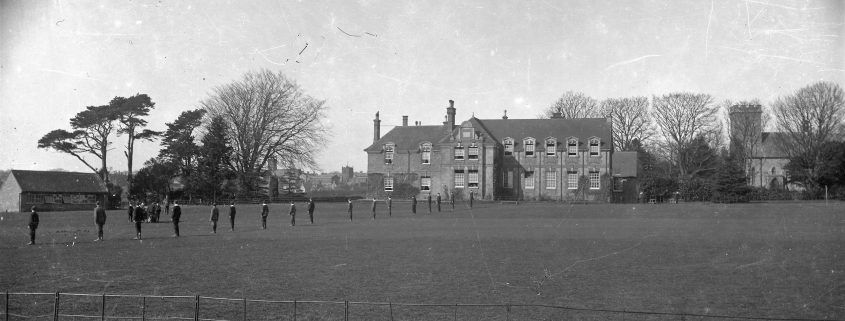Charles Jesse
Surname: Jesse
Other names: Charles
Locations in this story: Fontmell Magna, Shaftesbury, DorsetHartgrove, Shaftesbury, DorsetCosford Grange, Shifnal, ShropshireFrance & FlandersSt. Lucia, West Indies
Story: Charles Jesse was born at Fontmell Magna, Shaftesbury, Dorset, in 1898 and baptised there on 20th March 1898, the son of William Jess and Kate Rose Jesse (née Jeanes). He lived his early life in and around Fontmell Magna and later at Hartgrove, Shaftesbury, Dorset. He attended Shaftesbury Grammar School with his younger brother Frank, who sadly died in 1918 while serving with the Royal Berkshire Regiment in France. Another brother, Percy William, also served and survived whilst with the New Zealand Forces.
Charles enlisted on 18th October 1916 and joined the City of London Regiment as a Private (Service Nos. 6968), seeing service with the 2/8th Battalion. He was transferred to the 1st London Field Battalion (Service No. 373821) and served in France and Flanders from 4 Feb 1917 until 22 Sep 1917. He was later transferred again to the Royal Engineers following ill health with the rank of Sapper (Service No. 547822) and served as a Clerk at the 1st London Field Company. He was declared no longer physically fit for service and discharged on 12th September 1918 and awarded the Silver War Badge No. 448645 along with the Victory and British War Medals. His Pension Record ceased on 7th March 1920 where it is indicated that he had moved abroad. According to information received he had moved to St. Lucia, West Indies, and became in due course a priest in the Roman Catholic Church. He wrote a number of books about St. Lucia as well as being the writer of the lyrics of that island's National Anthem in 1967 which was adopted officially in 1979. He was awarded the MBE. He died in St. Lucia in 1985 and is buried at Castries Cathedral. Castries, St. Lucia.
Charles's name was included on a hand written list of Shaftesbury Grammar School old boys serving during the war. An asterix can be seen next to his brother Frank's name, indicating that he had died. The board is now at Gold Hill Museum.
Charles enlisted on 18th October 1916 and joined the City of London Regiment as a Private (Service Nos. 6968), seeing service with the 2/8th Battalion. He was transferred to the 1st London Field Battalion (Service No. 373821) and served in France and Flanders from 4 Feb 1917 until 22 Sep 1917. He was later transferred again to the Royal Engineers following ill health with the rank of Sapper (Service No. 547822) and served as a Clerk at the 1st London Field Company. He was declared no longer physically fit for service and discharged on 12th September 1918 and awarded the Silver War Badge No. 448645 along with the Victory and British War Medals. His Pension Record ceased on 7th March 1920 where it is indicated that he had moved abroad. According to information received he had moved to St. Lucia, West Indies, and became in due course a priest in the Roman Catholic Church. He wrote a number of books about St. Lucia as well as being the writer of the lyrics of that island's National Anthem in 1967 which was adopted officially in 1979. He was awarded the MBE. He died in St. Lucia in 1985 and is buried at Castries Cathedral. Castries, St. Lucia.
Charles's name was included on a hand written list of Shaftesbury Grammar School old boys serving during the war. An asterix can be seen next to his brother Frank's name, indicating that he had died. The board is now at Gold Hill Museum.




